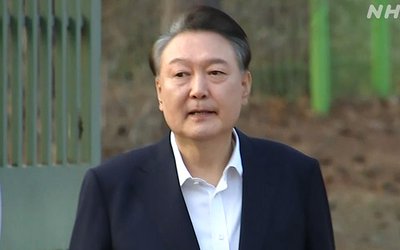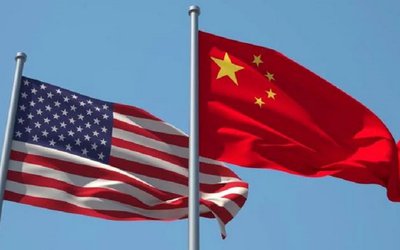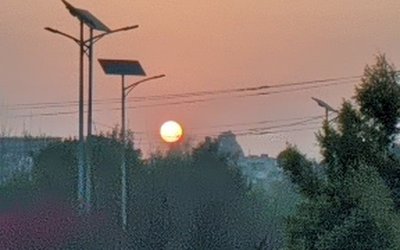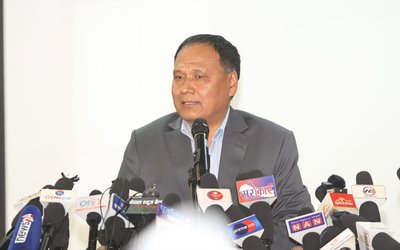
How do you view the status of state restructuring in the context of local development?
First of all I would like to tell you that the decision to go for federalism was made without enough scientific study and justification about this. From the rule of the Lichchhavi to the Shah dynasty, Nepal followed a long system of governance and devolution of power. During the Lichchhavi period, there were local units like Tal and Grampur. These exercises were part of self governance and autonomous local bodies. During the Malla period, when the central government was weak, the provinces, which were given local autonomy, declared themselves as independent states and the rulers declared themselves as kings. This resulted in 22 and 24 princely states. The events taught us a lesson on how a province can declare itself as independent when the center was rendered weak. Historians might know this but the politicians have done little to study the issue.
Why is there so much controversy about the provinces?
The government accepted the federal model without doing a proper homework and understanding the system. Nobody has done any serious homework about whether federalism is the need of the nation? Or, whether federalism is economically viable in Nepal? The decision was taken haphazardly. This is the reason there are big political debates now. The present problems in federalism are the result of this lack of proper study and homework. With the first amendment of Interim Constitutionally, Nepal has been declared a federal state. However, we do not know much about the nature and content of federalism and its history and geography in Nepal.
Given the present nationwide agitation, do you see any possibility of reversal?
Whether one likes it or not, there is no option before us other than to go for federalism in Nepal as federalism is an integral part of the interim constitution. The restructuring of current districts has remained overdue for a long time. There was the need of changing the boundaries of certain districts. The current work on certain districts is really valid. For instance, the separation of Baglung, Rukum and Nawalparasi is comparatively very scientific. However, the recent opposition in these three districts has nothing to do with geography as the opposition is politically and ethnically motivated. For instance, Dhorpatan area of Baglung is much closer to Rukum and Gaindakot is closer to Chitwan than Parasi and Baglung.
How necessary is the restructuring of state?
Restructuring is definitely required but it should be made on a scientific basis and broader consultations. It is very unfortunate that no government since 1951, 1961 and 1990 has made any efforts to restructure the shape of Nepal. With the dismissal of the elected government and introduction of Panchayat, late King Mahendra in 2018 restructured Nepal, dividing it into 14 zones and 75 districts, 3347 Village Panchayats and 13 Nagarpanchayats, for the purpose of administration. This has continued for long. Although state restructuring remains necessary, Nepal’s political parties did not raise the question of state restructuring in any political movement, including 1990 and 2006. State restructuring was urgent.
How much link does state restructuring have with federalism?
State restructuring does not mean Nepal should go for a federal structure. What people had been demanding was powerful elected local bodies, given full autonomy to decide on their own local agenda. People demanded restructuring of state for self rule and autonomy to take decisions on development. However, politicians have misinterpreted it and declared Nepal as a federal state. It is unfortunate that politicians played against the voices and opinions of the people. The present controversy is the result of this misunderstanding. When the leaders of political parties carved the borders of provinces, there were many flaws. They did so without consultation with experts, geography and culture. There lies the flaw. People came out against the model of federalism.
As the executive secretary general of ADDCN, you tell us: What should be the role of DDCs in the federation?
Our demand is that the local bodies, including the DDCs, should be made fully autonomous and politically strong. Demands for state restructuring do not mean Nepal be declared a federal state. As we all know, political parties are saying that the demand of federalism came because of people’s desire to enjoy the power. If we divide the state into several tires, people may not enjoy the real power and the power will be enjoyed by another few elites in the provinces.
What will be the role of DDCs now?
As the association has already forwarded its demand for autonomy, the role of DDCs is likely to be defined in coordination between the provinces and VDCs or Center, Provinces and VDCs. The experiences of other countries have already shown that federalism cannot succeed without strong and functional local government. As the proposed constitution bill has such provisions, local bodies will have to play a greater role in the coming days. Of course, the people’s institutions like DDCs, VDCs and Municipalities can be weaker in a system where there are several tires of government. Authorities will be scattered in this situation. It is very difficult to devolve the power.
Do you think districts will be required even after the promulgation of the new federal constitution?
Looking at the present six or seven provinces model, the role of districts will be more important to settle the issues between provinces and VDCs and municipalities. DDCs are going to be the middle points. As there are many local bodies, which do not have human resources and other financial resources, these bodies will be unable to deliver effective services to the people. Our past exercise has also shown that local bodies are unable to make service delivery effective. As the proposed constitution has given greater roles to DDCs, the institution will be stronger in the coming days. As provincial level governments cannot closely play the role of coordinator, DDCs should be given this role as logistics providers to the local government. The importance of District Council and District Committee will be much higher.
Have DDCs done any homework on how to carry out the future program?
ADDCN has already done a lot of exercise and homework on this. We have demanded that District Council should be given the executive role. The framers of the constitution have also agreed on our demands. Unlike in the previous draft, where DDCs were under the provincial laws, the new draft has placed them under the center. DDCA is also demanding some of the rights written in annexes should be given to DDCs. DDCA has already handed over memorandum to all 601 CA members. DDCA is a political organization. We have many representatives in CA and lower level. As many CA members have served one or the other term as chairman of DDC, they know the importance of DDC and are lobbying for powerful DDCs in the federal context. We are very closely monitoring the process. As a majority of CA members have, at one or the other time, worked under various social bodies, they know how important the local government is in carrying out the development work. This is the reason the new constitution bill is accepted given the name local government.
How do you see the possibility of holding the local elections at the earliest?
I have already told you that DDCA has played different roles at different levels. DDCA along with Municipality Association and Village Development Committee Federation have been launching campaigns for early elections for local government. This may be the reason there is a provision in the new constitution that the local elections should be held within six months of promulgation of new constitution. Since 2002, DDCA has been pressing the government to hold the elections filing the petition at the court. Even the Court has directed the government to hold the elections as per our demand. As our demand, the government has already proposed the bill in Legislature Parliament.
What is the state of bill?
The bill is as per the suggestion of DDCA and other stakeholders. Once the Parliament approves the bill, it will be easier to hold the elections of local bodies.
As you said, DDCA, Municipal Association and Village Development Committee Federation have been strongly launching the campaign to hold the election in time, why is there so much delay?
Had we not done continuous lobbying, we would not have been in the present situation. Political leaders have agreed to hold the local government elections within six months from the promulgation of new constitution. It was possible because of CA members who, at one or the other time, worked as the head of local bodies. The only problem now is the political leaders who don’t want to hold elections because of political calculations. It is unfortunate that national leaders do not understand the importance of local bodies. As you know local bodies are the backbone of democracy, functional democracy is impossible without elected local bodies. It is a shame for all of us running local bodies without elections.
What is DDCA?
DDCA is an umbrella organization of District Development Committees. It is a national body registered as per the national law. DDCA can play the role of a coordinator. We also work with Nepal’s development partners. We also work as a linkage body. All three associations of local bodies have been working closely to make local bodies more effective.
With whom does the DDCA work?
DDCA works with DANIDA, UNICEF, The Asia Foundation, SDC, The World Bank and many other donors. We are closely working with Ministry of Federal Affairs and Local Development. We are providing technical assistance to DDCs.
- IME GROUP: Expands Into Paper Industry
- Mar 24, 2025
- CPN UML: Instigated By India
- Mar 23, 2025
- ADB’S CHIEF ECONOMIST: Nepal Reduces Poverty
- Mar 11, 2025
- FM DR. DEUBA: A Successful Visit
- Mar 11, 2025
- MD GHISING: Target Of Personal Grudge
- Mar 09, 2025















